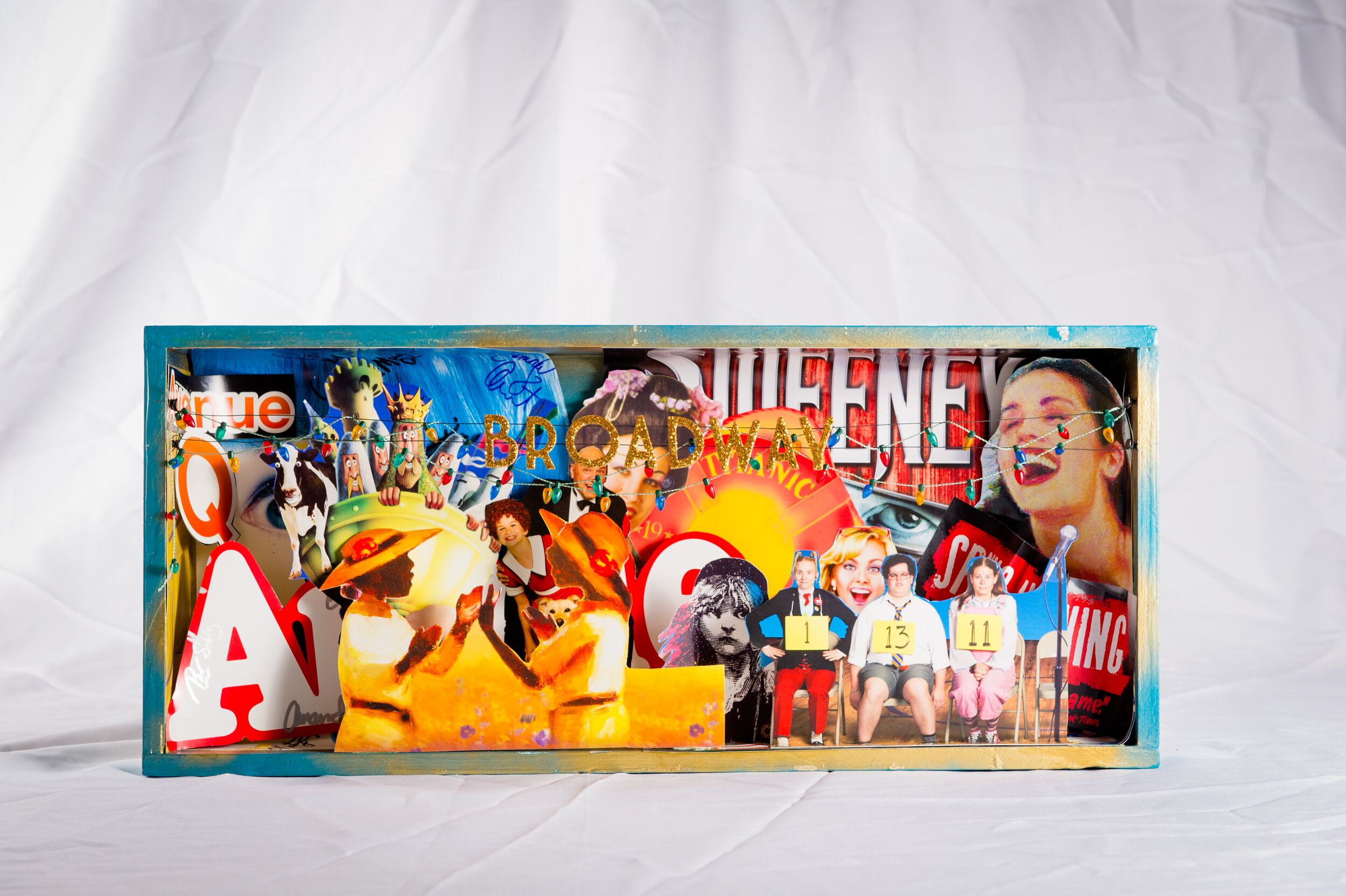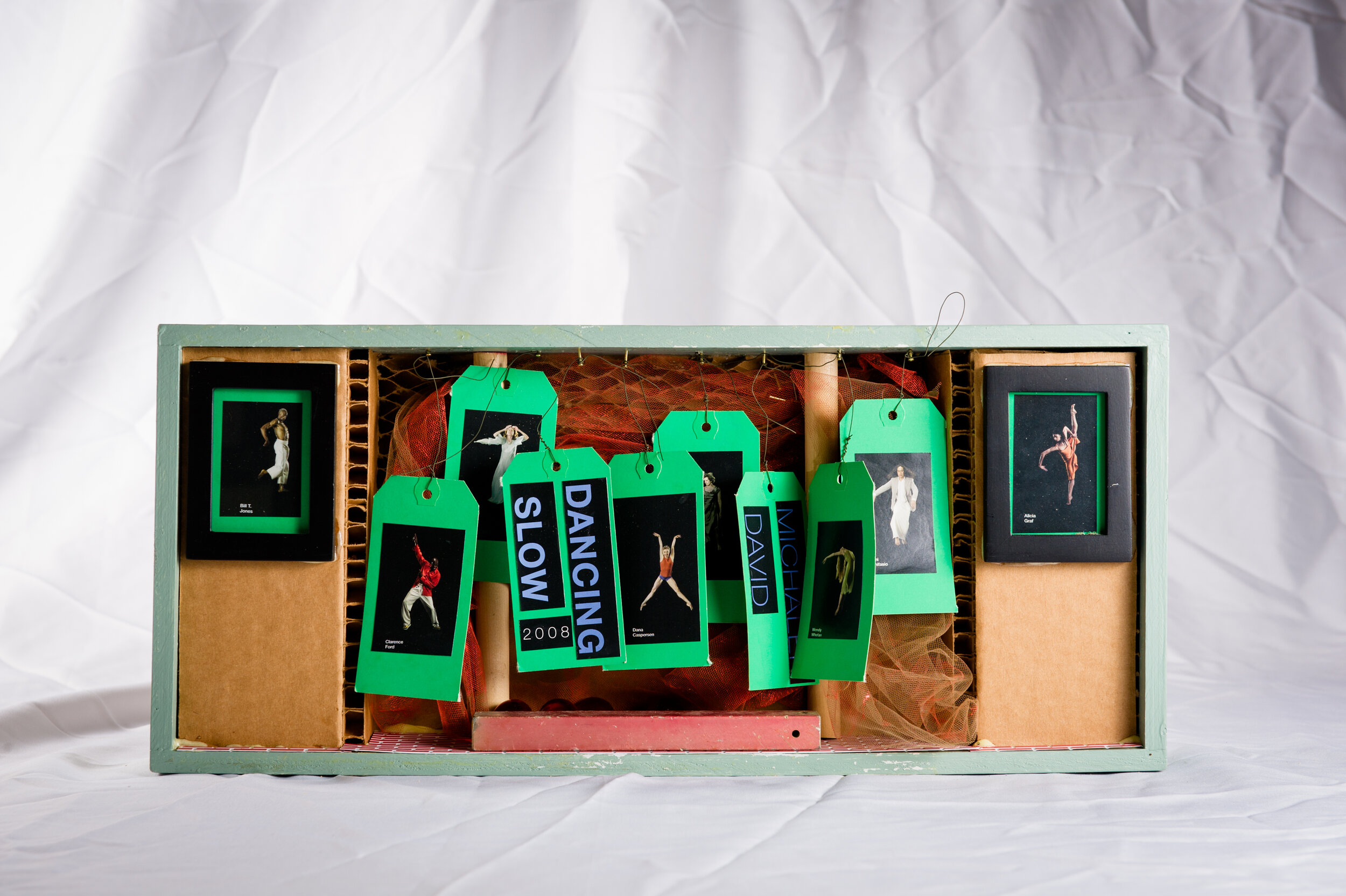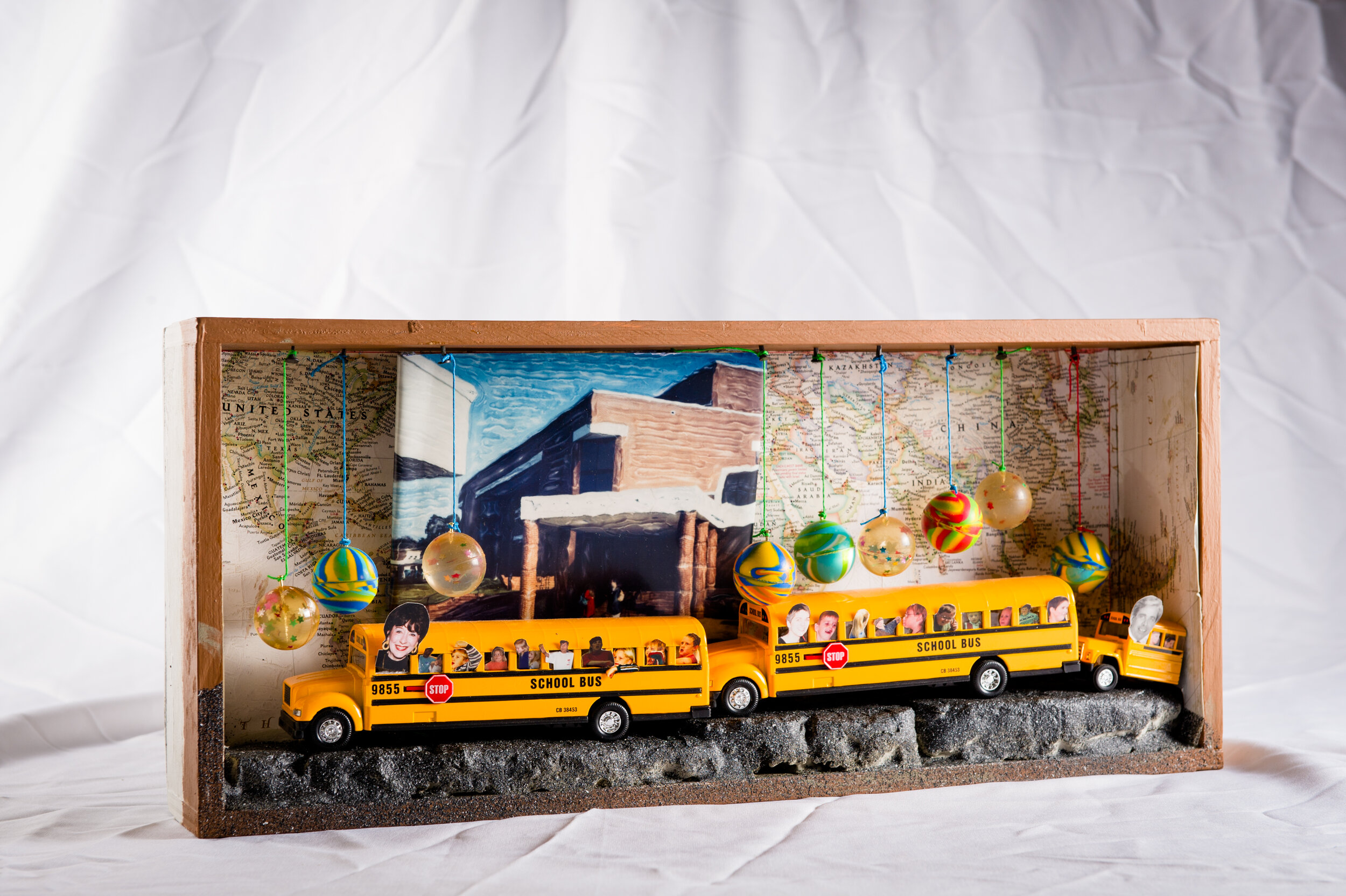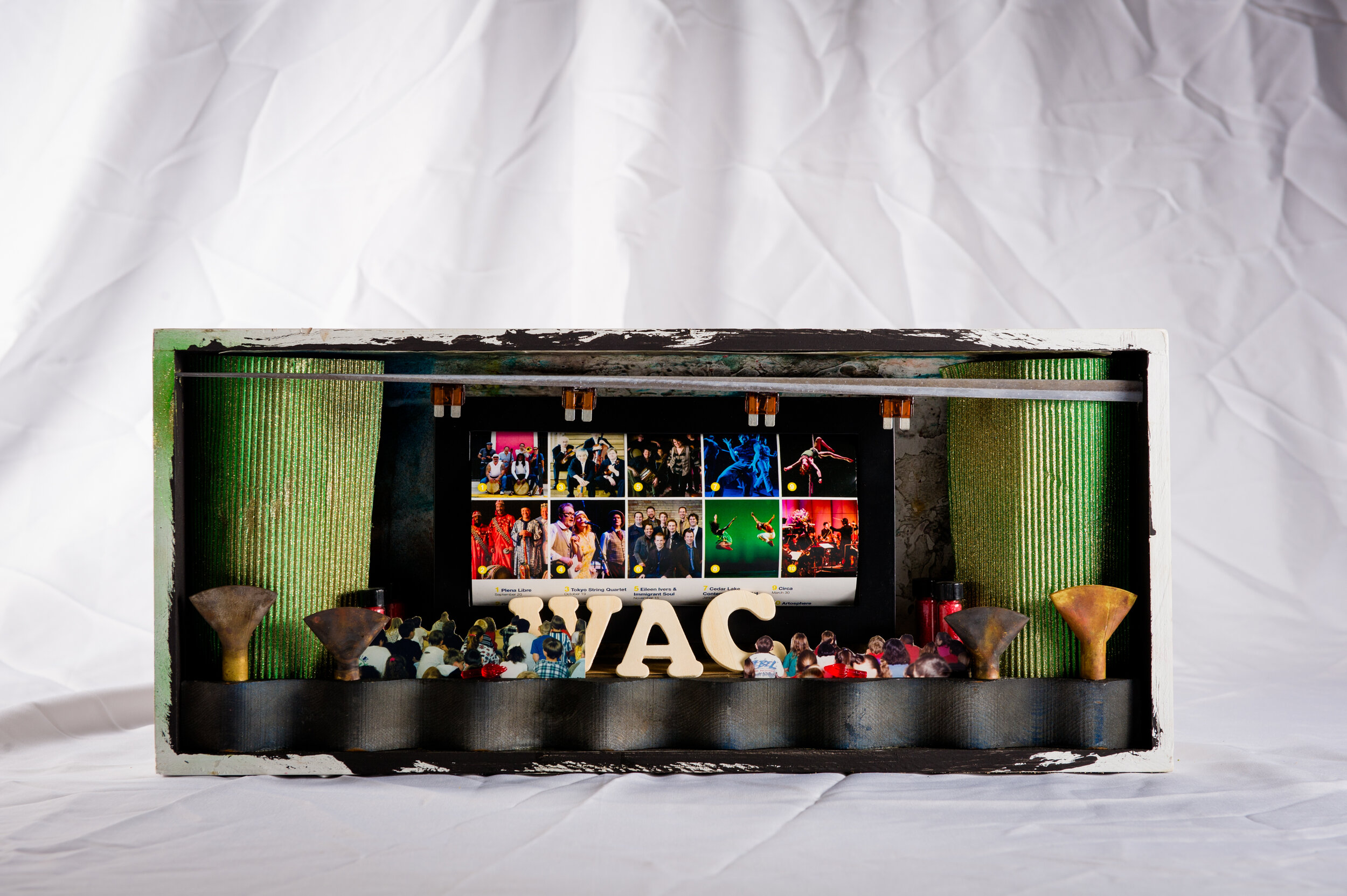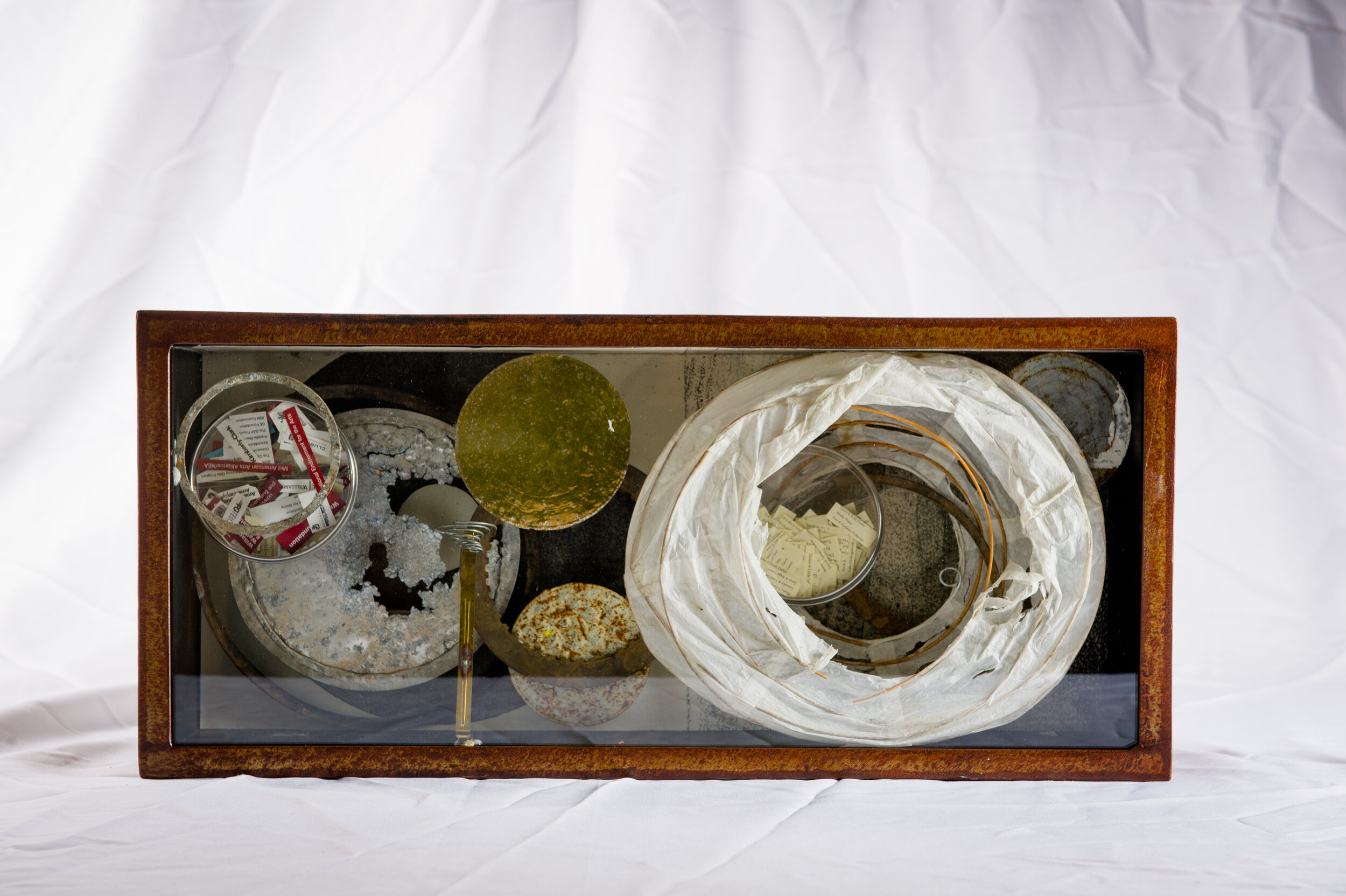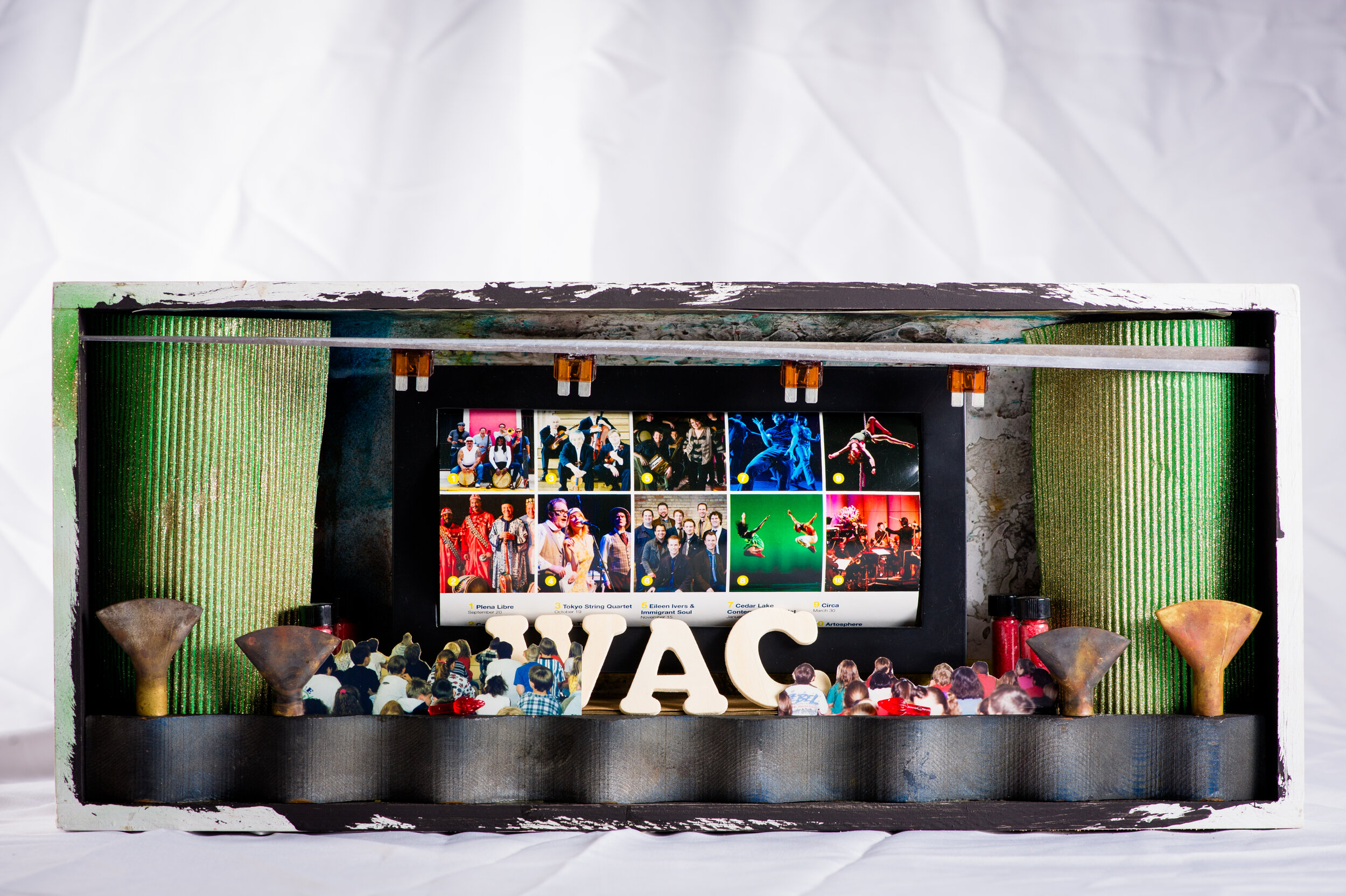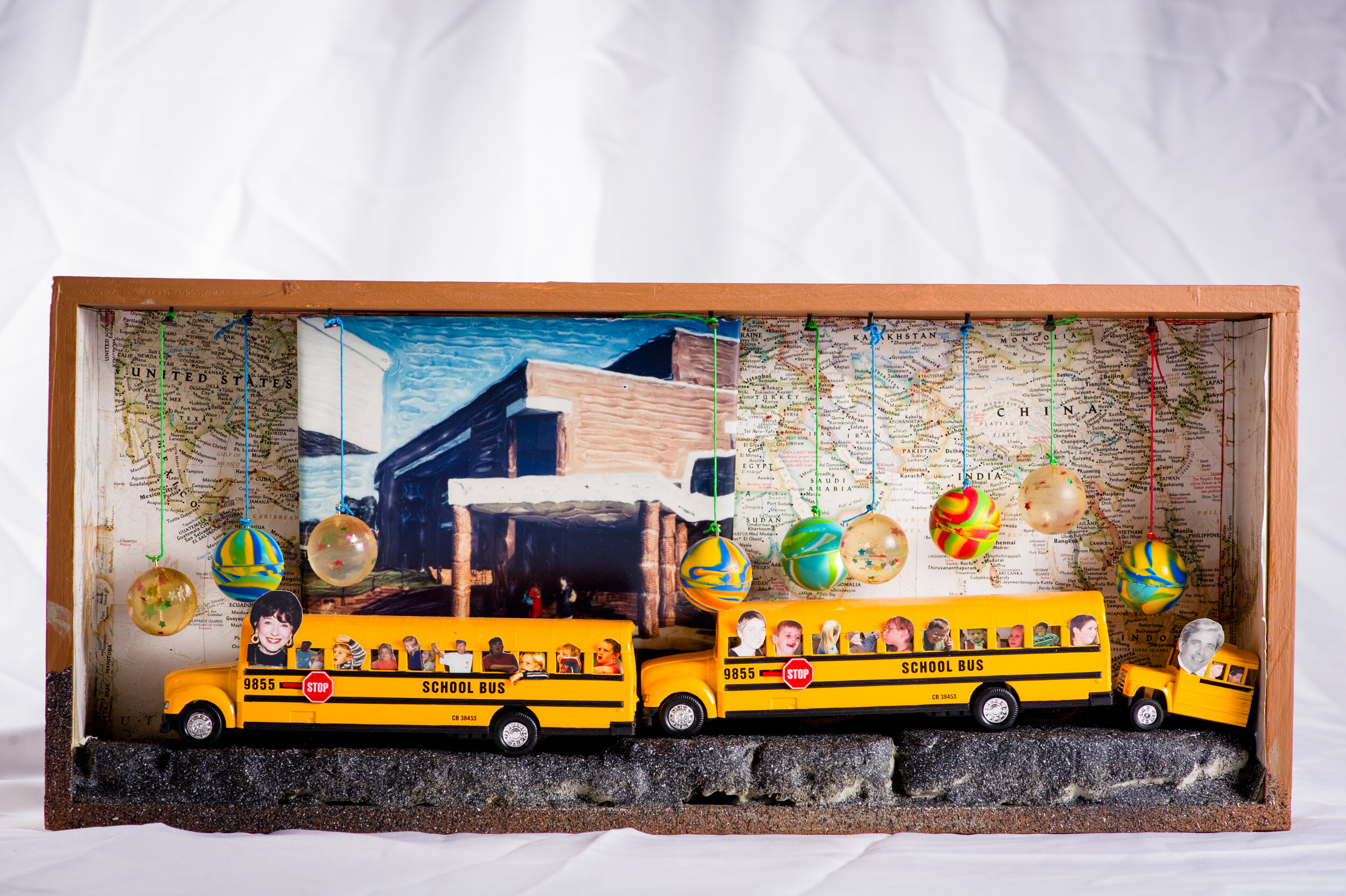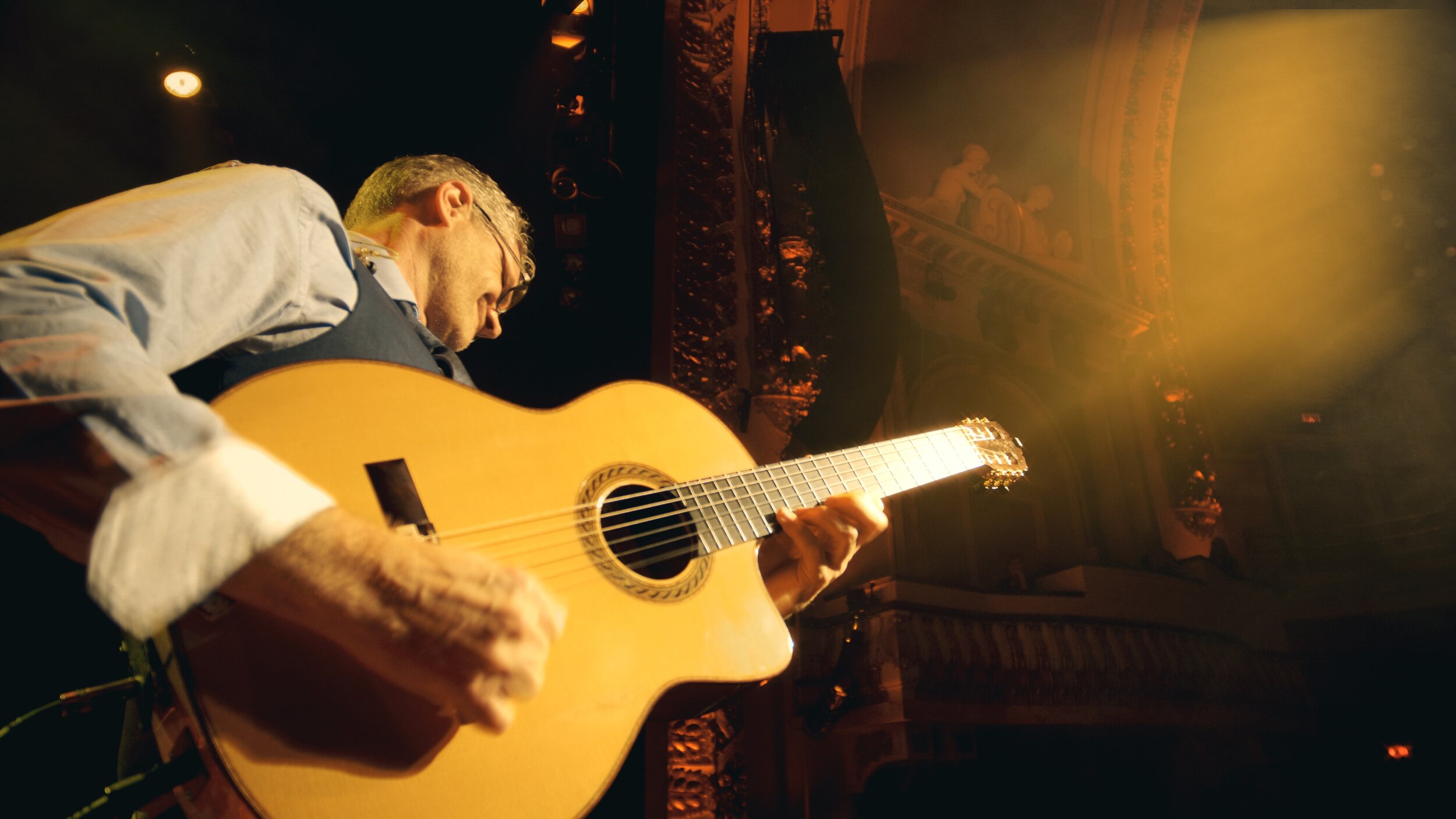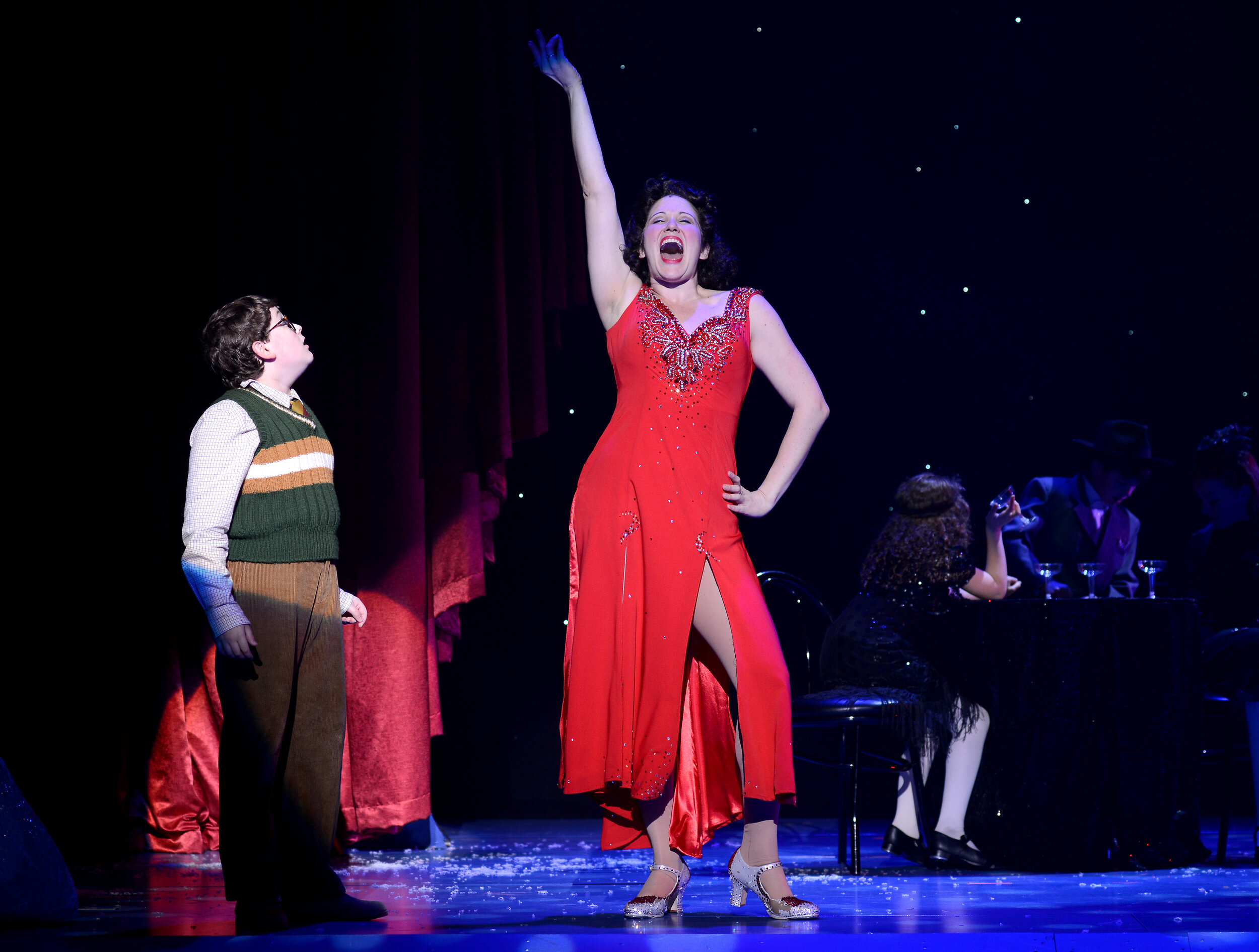Last night, Ballet Memphis took the state in Baum Walker Hall to present three contemporary ballet pieces as part of Walton Arts Center’s 10x10 Arts Series. Today on the blog we have insights on the artists’ performances, backgrounds in dance, musical taste in more! Check out our 10x10 Questionnaire with the artists of Ballet Memphis.
Describe what Ballet Memphis means to you.
Brandon Ramey: Ballet Memphis is home. I didn’t know when I signed my first contract in 2009 that I would meet my wife in the company, teach in the school, start a family, spend the next 10 years of my life in our great city or plan on spending the next 10 years here as well.
Virginia Pilgrim Ramey: Ballet Memphis is like a second home to me. Being from Memphis originally, I started dancing in the school when I was just five years old and then joined the professional company when I was 17. That being said, Ballet Memphis has had a very strong influence over the person and dancer I have become. I am so grateful to the dancers, staff, choreographers and students I have met through this company along the way. It has been an incredible journey.
Pablo Sanchez: To me, Ballet Memphis means a world of art and creativity that brings diverse members of the wider Memphis community together to experience our company’s artistic expression through dance. It means I get to belong with a troupe of dedicated dancers who hone their craft every day in order to engage with the public as we share our gifts.
Ballet Memphis was created to be a ballet company reflective of the community and nation – how is this mission brought to life on and off stage?
Brandon Ramey: Ballet Memphis has considered the demographics of our city and country and is intentionally hiring dancers that are a full reflection of all the people we want to reach. This not only creates diversity on the stage, but has fostered diversity among our viewing audience. Telling everyone’s stories gives everyone license to call us “their” ballet company.
Virginia Pilgrim Ramey: Memphis is a very unique and diverse city and it has always been important to Ballet Memphis that our professional company represents the people of the community. You see that reflected in the diversity of the dancers and within each piece we perform on stage. We strive to bring in diverse choreographers for each show so that the work we are presenting is as unique as we are.
Pablo Sanchez: Ballet Memphis brings to life its mission of reflecting the community and the nation by seeking dancers and choreographers from around the globe and creating works born of the shared human experience. We present our works at home in Memphis and reach a broader audience as we embark on national tours.
Dominiq Luckie: I think it’s brought to life by showing how diverse we are as a company. I think that’s reflecting our mission and how well we work together through our differences.
This performance includes three movements – Sa Voix, Flyway and Water of the Flowery Mill – why were these works selected for our audiences at Walton Arts Center?
Brandon Ramey: These pieces represent a wide range of the movement and narrative styles that Ballet Memphis brings to the stage. Sa Voix uses the language of classicism to address and confront the patriarchal nature of classical ballet; Flyway uses a more contemporary and theatrical vocabulary to connect the audience with the wonder of birds and the natural spaces that we share with them; Water of the Flowery Mill, inspired by Arshile Gorky’s painting of the same name, bounces between hyper-technical and modern ideas bringing to movement the surrealistic-inspired biomorphic abstraction of its progenitor. Together these works complement each other while keeping the evening lively and engaging.
Virginia Pilgrim Ramey: Our work at Ballet Memphis almost always has a story to tell. Rarely do we perform dance just for the sake of dance because we are truly striving to transform lives through our art form. That sounds like quite a task for a group of ballet dancers to take on, but under the direction of Dorothy Gunther Pugh for many years and now her kindred spirit, Steven McMahon, we have each learned that we have much we can say through dance. Sa Voix (translated “Her Voice”) is a lovely work about the strength and beauty of women and the powerful voices we have even when it seems that those voices may be overshadowed by our male counterparts. While female ballet dancers may sometimes come across as fragile and delicate, this piece shows how we can be mighty and gentle, elegant while also supporting our partners. Flyway, specifically about the Mississippi River Flyway, speaks to the geography that has a strong influence over the travel patterns of birds. As history has shown, the river has also had a great influence over the migration patterns of people as well. I feel like while the audience watches a lighthearted piece about birds, they will automatically draw so many parallels to the human condition. Water of the Flowery Mill is a personal favorite of mine, and it is an example of how a choreographer can fit dance steps to the music so perfectly that you actually see the sounds you are hearing. The music truly comes to life, and in this case, the painting by the same name comes to life also. This is a piece that leaves room for the audience’s imagination to write their own narrative. No two people will walk away with the same exact storyline, which I find fascinating
Pablo Sanchez: Three of Ballet Memphis’s signature choreographers bring the flavor of Memphis culture to the Walton Arts Center. Sa Voix by Julie Niekrasz, Flyway by Steven McMahon and Water of the Flowery Mill by Matthew Neenan are bound to delight our audiences here in Fayetteville.
Pick 5 words that best describe your work.
Brandon Ramey: Thoughtful, Challenging, Inspirational, Aspirational, Fun
Pablo Sanchez: Versatile, agile, technical, thoughtful, transcendent
What drew you to the field of dance? And what continues to fuel you in this art form?
Brandon Ramey: I’ve wanted to dance professionally since I was 12. I never felt more alive than when I was jumping, turning or performing; I wanted to be the next Baryshnikov. I haven’t stopped trying.
Virginia Pilgrim Ramey: Music is such a huge part of what drew me to dance. My parents were both musicians and true music lovers, so we had music in the house pretty much all the time. I danced before I even knew how to dance and thankfully my mother had the foresight to put me in ballet classes. Even now, my favorite pieces we perform are the ones where the choreographers have been inspired by the music first and then have created steps that fit so perfectly with what you hear. Music and movement work together to evoke feelings and conjure memories better than any other method of storytelling.
Pablo Sanchez: My initial exposure to the art of dance was through my older sister. As I watched her Ballet Folklorico group perform, I yearned to express myself through dance and began taking lessons at age ten. Since then, my desire to grow professionally and work hard with other talented artists has fueled my drive to pursue this art form.
Felecia Baker: My mom has taken ballet classes her whole life. Though she was never interested in dancing professionally, she introduced me to the art form and made sure I got the best training. What continues to fuel me is how there’s always room for improvement.
Dominiq Luckie: Football was a starter for me getting into dance. What continues to fuel me is that your growth in this field seems endless. It feels like you develop and gain knowledge in dance, the world and yourself as an artist.
What are some unique or memorable experiences you’ve had while traveling around the world to share the art of dance?
Brandon Ramey: On tour last year, a woman came up to me after the show and told me her maiden name was Ramey. She told me that the Ramey brothers came from Strasbourg in the late 19th century to escape the turmoil of the Franco-Prussian War and settled in Kentucky (where my father is from). We figured out that she was a far distant cousin of mine and we were each able to fill some holes in our respective family trees that we thought had been lost to time
Pablo Sanchez: My experience in dance has led me to collaborate with Native American artists from Montana, deaf and blind dancers in China and dancers from virtually every corner of the globe. As a cultural ambassador, I have the privilege of sharing our art form with others, while always being on the receiving end of much greater cultural gifts.
What message do you hope to send the world via your performance?
Brandon Ramey: A good life is more than a good paycheck; diversity makes a richer tapestry; ballet is still relevant and becoming more relevant.
Virginia Pilgrim Ramey: One thing my mother has said to me through the years is that at each performance someone may be seeing dance for the first time and someone may be seeing dance for the last time. In either case and for the people who will be back again and again, I strive to be an uplifting source of light in what can sometimes be a dark and heavy world.
Pablo Sanchez: We transmit a message of love and hope to those who engage with our work. They see the resilience, strength, and beauty of the human body as it speaks the language of the human soul. Our goal is to inspire others to persevere and rise above.
Felecia Baker: When I’m performing on stage, I feel so much joy and excitement. I hope to share those same emotions with the audience.
What is the best advice that you have been given?
Brandon Ramey: Open an I.R.A.
Pablo Sanchez: Do what you love and love what you do—always. (From my mother!)
Dominiq Luckie: Everyone’s path and how to get there...is different.
Whom do you define as visionary; and why?
Brandon Ramey: You are and so am I. Anyone who can see something that doesn’t yet exist, and then create it, is a visionary. The ability to imagine is what makes the human species unique. I hope that through the arts we are able to inspire others to be visionaries in their own lives.
Pablo Sanchez: A visionary is a person who is able to see beneath the surface and through the current chaos to the beauty and potential that lies beyond. Our Founding Artistic Director and CEO, Dorothy Gunther Pugh, is that person. Dorothy´s vision, value system, and collaborative spirit enables us as dancers to shape the future from our platform on stage.
What songs, artists or genres of music are you currently listening to?
Brandon Ramey: I’m listening to the soundtrack to La La Land. My favorites are “Another Day of Sun,” “City of Stars” and “Audition (The Fools Who Dream).”
Virginia Pilgrim Ramey: We listen to a lot of classical music and oldies at home—Roy Orbison, Johnny Cash, The Platters and The Drifters just to name a few.
Pablo Sanchez: Solange, Roy Orbison, Lizzo
Felecia Baker: Anything Beyonce! She has great party music!
Dominiq Luckie: Drake, Smino, Mac Miller; Hip Hop/R&B/Pop






























